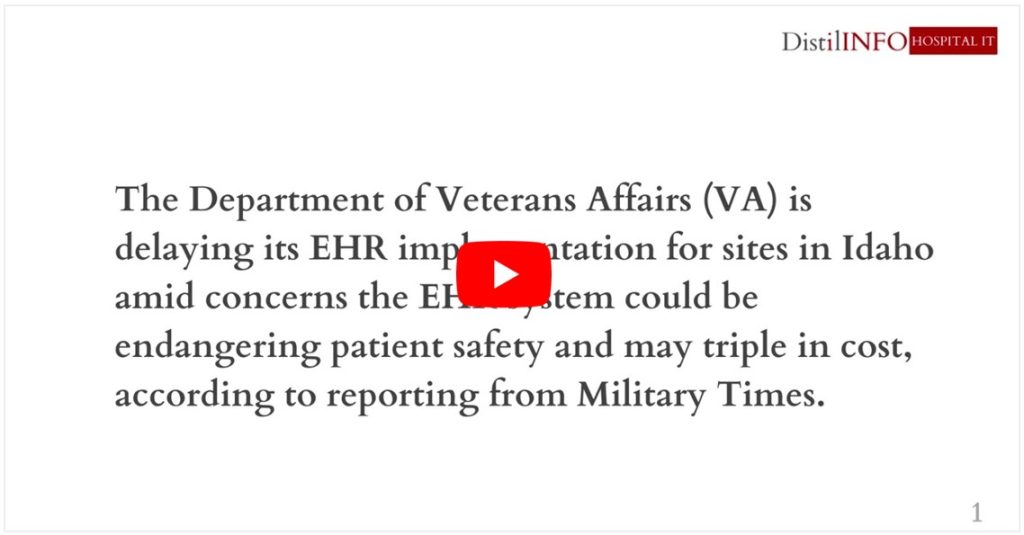
The Department of Veterans Affairs (VA) is delaying its EHR implementation for sites in Idaho amid concerns the EHR system could be endangering patient safety and may triple in cost, according to reporting from Military Times.
Lawmakers said the latest go-live postponement and other promised fixes to the implementation do not adequately address the system’s problems.

“For nearly two years, [local employees] have done all they can to provide healthcare to veterans in the middle of a pandemic, and with an electronic health record system that is not delivering,” Jon Tester, D-Mont., Senate VA Committee chairman, said during a hearing on the issue. “We know this program faces very real problems and we need to work together to make needed improvements without delay.”
Last week, the VA Office of the Inspector General (OIG) released a report that found the Oracle Cerner Millennium EHR implementation in Spokane, Washington, caused 149 cases of patient harm.
The report was the latest in a series of negative assessments of the EHR unveiled by OIG over the last two years.
Several of the reports have led to reviews and delays. Most recently, VA leaders announced plans to postpone the system go-live in Boise, Idaho.
Lawmakers are also scrutinizing the project’s cost after VA officials said the total over the next 30 years could approach $51 billion when factoring in system maintenance and staffing issues.

“It is $40 billion over the cost estimate VA has been operating under until now,” said Sen. Jerry Moran, R-Kansas, ranking member of the VA committee. “But until Monday, we were not aware how large that cost overrun truly is.”
VA officials said those calculations factor in expected costs outside the EHR contract and do not indicate an over-budgeted project.
Officials promised that recent corrections, such as establishing new oversight protocols and staff training plans, would keep the project on schedule.
“We’ve taken sufficient steps to build additional safeguards, knowing where the vulnerabilities are based on experiences we’ve had, to reduce the risk of additional harm or to reduce the likelihood of similar problems occurring and other sites,” said Dr. Gerard Cox, VA’s assistant undersecretary for health for quality and patient safety.
“I feel like we have done everything possible to reduce the risk to patients,” Cox added.

Officials from Oracle Cerner have said that many problems with system integration were expected and reparable.
“While I fully appreciate substantial challenges exist – all of which are legitimate and understandable – the fact is that more is working than is not,” said Mike Sicilia, executive vice president of Oracle. “There is nothing here that can’t be addressed in reasonably short order.”
However, lawmakers are unconvinced.
Mike Bost, R-Ill., House Veterans’ Affairs Committee ranking member, said he has “serious doubts about whether this project should continue, even if the fatal flaws at the initial rollout sites are fixed” because of the ongoing cost and patient safety questions.
Several other lawmakers have pushed for VA to abandon the project. Denis McDonough, VA secretary, said he is not considering that option.
“We will get to the bottom of these problems, and make sure that we can realize a modernized electronic health record that draws the full history of our veterans’ service to the country,” he said. “When we realize that potential, we will be able to expand exponentially the benefits for veterans and for the country.”
Source: EHR Intelligence

Leave a Reply